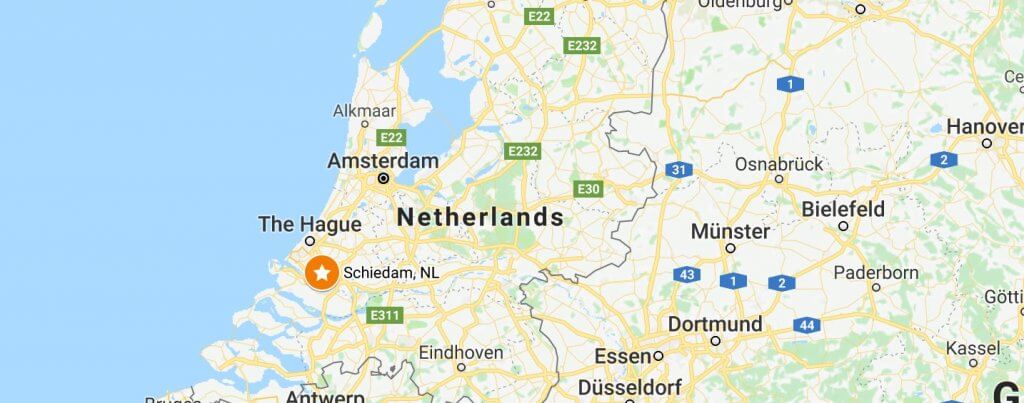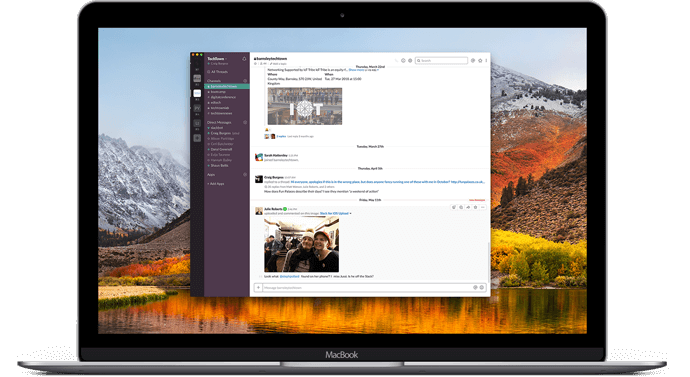Schiedam Partner Profile

Located in the province of Zuid-Holland in the Netherlands, Schiedam is part of the Rotterdam The Hague metropolitan area. It has a historic jenever/gin distillery industry which was replaced by shipbuilding in the early 1900’s as the dominant industry. This has since declined. The city has a population of 78000 and the unemployment rate is 9.7%. 42% of the population has a migrant background.
About the city
- 99.7% of all companies are small and medium sized enterprises (SMEs)
- The city is home to 416 creative and 95 digital companies
- • The city is home to 34000 jobs with two thirds of the workforce commuting in
- Key local employment sectors include professional, technical, administration and support services, wholesale and retail trade, public administration incorporating defence, education, human health and social work and manufacturing.
- Important transport hub, easily accessible by train, light rail, underground, tram, bus and plane
- The sea, technology, innovation and creativity are identified as economic drivers locally.
About the policy context
The good practice will be transferred within the following policy contexts:
- At national level Tech Revolution is particularly aligned with Cabinet Targets around business, innovation and entrepreneurship, linked to knowledge and higher value jobs
- At regional level, it has clear links with a series of roadmaps which, combined, aim to drive the Next Economy. The most relevant are the Smart Digital Delta, Next Education and Next Society roadmaps.
- At local level the project is linked to plans to renew and revitalise economic areas so as to provide space and support for the new economy including digital and tech businesses.
Strengths and Weaknesses
Strengths
- Strategic location west of Mainport Rotterdam and south of Delft
- Good transport access (car, rail, air, metro, bus and tram)
- Accessible to & from wet harbour areas through Nieuwe Maas River
- Strong business clusters (Harbour Industrial Cluster HIC / Offshore)
- High tech systems, materials and engineering firms
- Health and social care
- A20 zone = priority location
- Well organised business
- Diversity of business areas including high end environmental categories and wet business area
Weaknesses
- Dispersed & limited number of new business parks and premises
- Many competing office locations in the region
- No higher education institutions
- Lack of skilled labour
Opportunities and Threats
Opportunities
- Entrance and exit of A20 motorway at Schieveste
- Restructure of business parks and harbour development
- New economy in the city centre
- Next generation housing programmes
- Cooperation between institutions of education and businesses
Threats
- Lack of skilled workers
- Division of society
- Low mobility within the labour market
A description of the Good Practice challenge in the city
The city wants to transform its economy from one, which historically was reliant on ship building to a more diverse business base. To achieve this Schiedam participates in the Next Economy Roadmap programme of the Metropolitan Region. This programme sets out five ‘transitional’ paths of which the following are most relevant to TechRevolution:
- Smart digital transition: automation, robotisation, artificial intelligence, blockchain
- Next education: next labour market, next skills, organisational adaptability, flexibility
- Next society: Tech meets neighbourhood, grassroots economy.
Schiedam & TechRevolution
It has significant long-term experience of public-private collaboration and multi stakeholder work. It wants to use TechRevolution to:
- Reinforce the development of its space and service support offer to local businesses, not least by encouraging local entrepreneurs to participate
- Use this enhanced community and business support offer to drive up occupancy of existing and emerging workspaces e.g. the ONS building and the Maritime Innovation Centre (both are under development – see below)
- Better understand the role of the local authority (and other stakeholders) in the development of this space and support offer and develop new skills and competences to affect change
- Connect stakeholders around a vibrant active collaboration platform – develop a multi-perspective-approach which outlives the URBACT funding and support
- Improve the delivery, quality and accessibility of its services to local entrepreneurs
- Support more and better coordination of existing efforts and initiatives around business workspace, support and a wider community offer
- Contribute to the development of an inclusive society where the supply of labour and space matches the demands of employers and industry (although it is acknowledged that this is outside the definition of the Barnsley good practice).
The URBACT Local Group (ULG)
The ULG will build on a number of preexisting fora which bring different stakeholders together in different compositions, depending on the topic. They will focus on:
- Cross sectoral information transfer, exchange and learning
- Analysing the Barnsley Good Practice, identifying and then advising on transferability opportunities for Schiedam
- Using the learning from the Barnsley good practice to help drive their collective strategic agenda forward
- Coming together to adapt relevant elements of the good practice and then delivering them (either as pilots or at scale) across different related sites and initiatives within the city.
ULG membership will include: Local Business Associations, Innovation Quarter, Metropolitan Region Rotterdam The Hague (MRDH), Province of Zuid-Holland, Delft University of Technology, Erasmus University Rotterdam, Port of Rotterdam, Employment Support Organisation and various stakeholders from the municipality of Schiedam (including Economic development, Business Education and Labour Market, Information Management, Port Development).
Assets for, and barriers to, transfer
It is clear that the city and its stakeholders are absolutely committed to using digital and tech as an enabler through which to grow high value start-ups and jobs within and outside existing industry. The transfer will build on an established culture of community engagement and a long-term, strategic approach to local and regional economic growth. The city also has a new political administration, which is supportive of growing a digital economy. This new political executive will be in office for the next 4 years so it is an excellent opportunity to drive change against a relatively stable political backdrop, particularly where it can also contribute to other political priorities.
The TechRevolution transfer will build on a number of existing projects including the Maritime Innovation Centre in the harbour area, which will focus on the development of a new (virtual and physical) campus to support ‘next education’ in new knowledge-based employment sectors by facilitating links between SME’s and higher education institutions. The transfer is also relevant to the new A20 Zone, which includes innovative economic projects and the planned transformation of an existing ONS building into new workspace for start-ups (due to start 2018). Finally, Schiedam is home to a smaller ‘maker shop’ which has plans to develop a full offer of space and support for local creatives looking to progress from idea to product.
However the city faces a number of ongoing challenges, which may be barriers to transfer:
- With a constantly changing economic make up, there is a mismatch between the supply of, and demand for, space
- Whilst there is a culture of collaboration and partnership, the entrepreneurship ecosystem is not flourishing – different elements work well but are often disconnected from each other
- It may not be possible to fully understand the good practice or to fully translate it within the local context – getting collective agreement on the focus of the transfer and buy-in to the transfer plan is likely to be an early challenge to be addressed
- Technological developments require different skills and competences. Education and training needs to adapt. Whilst not strictly within the limits of the defined good practice, this is likely to be an ongoing barrier to growth of the digital economy, at least in the short term.
- Tech leads to disruption of incumbents, which can create real challenges in a city which has a high number of small businesses which can struggle to respond quickly to change
- City officials, politicians and stakeholders may need to think more ‘outside the box’ and attempt to embrace the chaos of the new fast moving economy. This will require an entrepreneurial and agile approach, not always associated with local government.
Practical steps to transfer the GP
Schiedam is interested in using the following techniques to transfer the good practice:
- Online and offline fora where Tech Revolution network members can openly and honestly share knowledge and experience on the topics outlined above.
- Professional development of Schiedam staff through peer learning and / or staff exchanges.
- ‘Learning by doing’ and testing and learning quickly from beta actions
- Regular – monthly – virtual meetings / conversations with Barnsley staff to catch up on progress and ask questions relating to specific challenge
- Ad hoc exchanges to seek advice


